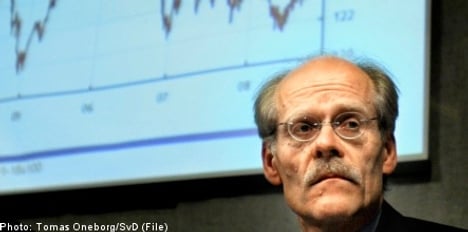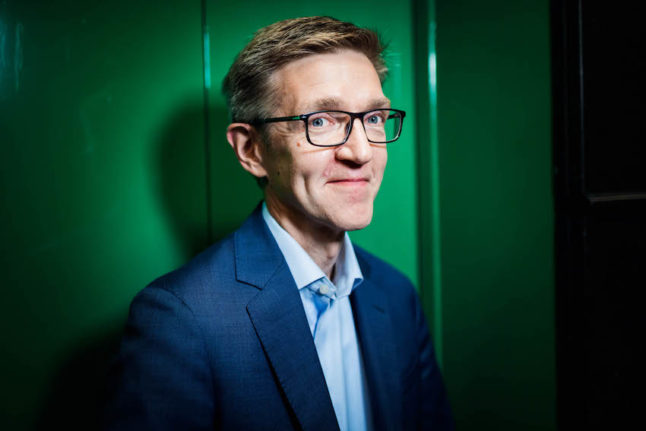“The concern over public finances abroad has increased and global growth prospects have deteriorated. The slowdown in the Swedish economy is thus expected to be more pronounced than was forecast in July,” the Riksbank wrote in a statement.
The Riksbank is counting on a repo rate of 2.4 percent on average next year and 2.9 percent in 2013. Before, the prognosis had been 2.8 percent for 2012 and 3.4 percent for 2013.
The GDP growth forecast for 2012 decreased from an earlier 2.2 percent to 1.7 percent. For 2013 the Riksbank has lowered the growth expectations from 2.5 percent to 2.4 percent.
Inflation is estimated to be 2.1 percent in 2012 compared to 2.7 percent. For 2013 it is lowered from 2.8 to 2.6 percent.
“A lower repo-rate path will gradually stabilise inflation around the target of 2 per cent and resource utilisation around a normal level,” the Riksbank wrote.
According to the statement, the board decided unanimously to hold the repo rate unchanged.
However, deputy governors Karolina Ekholm and Lars E.O. Svensson both entered reservations against the repo rate path in the Monetary Policy Update.
Annika Winsth, head economist at the Nordea bank, said the announcement was “very much in line with expectations”.
“They’ve decided not to raise the interest rate and they’ve also revised the interest rate path in line with our expectations,” she told the TT news agency.
She added, however, that the Riksbank’s GDP growth forecast is likely too optimistic and that both growth estimates and the interest rate path will be adjusted downward in the future.
“On the margins, the Riksbank is signaling that there is a lower likelihood for an interest rate hike later this year,” said Olle Holmgren, and economist with the SEB bank.
He thinks that the news will get the market to react with lower market interest rates and a strengthening of the krona.



 Please whitelist us to continue reading.
Please whitelist us to continue reading.
Member comments